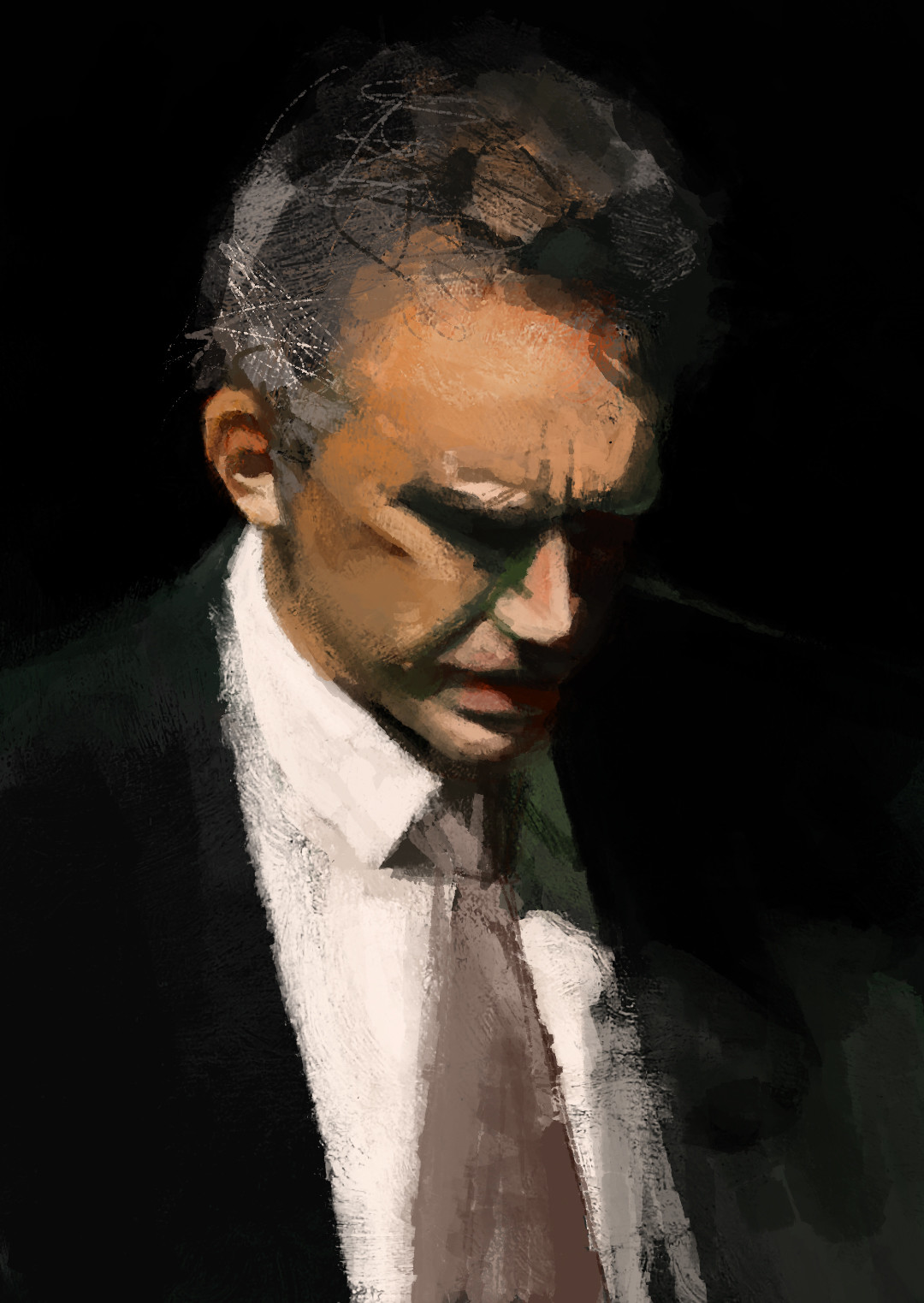 This was recorded on Uncle Adolf’s birthday last month, I’ve just watched Peter Robinson’s interview with Jordan Peterson.
This was recorded on Uncle Adolf’s birthday last month, I’ve just watched Peter Robinson’s interview with Jordan Peterson.
Robinson is alarmed by the rise of the Woke Monster. But unlike me, who already sees the mental virus of this monster in the tiny mustard seed of the gospel (which has now grown into a huge tree where birds nest), Peterson said that cognitively we needed ‘Judeo-Christian ethic’, his words.
Robinson quoted Chesterton: ‘The Declaration of Independence dogmatically bases all rights on the fact that God created all men equal; and it is right; for if they were not created equal, they were certainly evolved unequal. There is no basis for democracy except in a dogma about the divine origin of man’. I couldn’t have put it better myself! American democracy is the creature of Judeo-Christian ethic, but in the sense that democracy is the most aberrant system the Westerner has ever devised, something that Plato saw (it is the priest of the sacred words who must reign, someone analogous to Plato’s philosopher-king).
Speaking of kids who are lobotomised in universities, Robinson says that they believe all the propaganda of the elites: ‘If you don’t have some notion of the transcendent, if you don’t have some notion of the divine, you believe any damn thing’. Peterson Christianised that statement by alluding to Dostoyevsky: ‘If there is no God everything is permitted’ and a couple of minutes later added that he acted as if God existed, without answering whether he believed in the existence of God. This reminded me of the way Kant ended his second Critique, but the serious thing is that neither Kant nor Peterson realise that they are creatures of daddy’s introjects; that our view of ‘God’ has been contaminated by the Christianity of our parents: Kant’s extremely puritanical parents, Peterson’s, Robinson’s and my own parents (see the third volume of my autobiographical trilogy, which is now once again available in the language in which I wrote it).
At the end of minute fifty-three, Peterson said he wanted to understand the psychological motivation for why atrocities are committed, and gave the example of wanting to understand the mind of the Auschwitz guard. Peterson wasn’t honest in his analysis. He had the privilege of writing a foreword to the 50th anniversary of The Gulag Archipelago, but in another of his lectures he didn’t dare to answer a question from the audience about the same Russian author’s other non-fiction book, 200 Years Together.
If Peterson were honest, in 200 Years Together he would have begun to glimpse the answer to what he calls the ‘atrocity’ of Auschwitz. The next step would have been to read the Jewish Lindemann’s chapter on this subject in Esau’s Tears, a book published by a respected university, where he gives context as to why the German state took such prophylactic measures (an incredible thing to come from the pen of a Jew). And if Peterson had wanted to graduate on the subject of Auschwitz, then he would have read what Savitri Devi said in the book we recently translated into English for this site (a book I would love to have in my Daybreak Press so that it could be sold in print form to visitors to this site).
Savitri died forty years ago. If Peterson were honest, he would ask those who advance the POV of exterminationist anti-Semitism why they believe that; say, by interviewing Alex Linder. But one who couldn’t bring himself to answer in public a simple question about a study of Jewry in Russia—Solzhenitsyn’s second and last non-fiction book—will be much more incapable of pondering the mind of the Other honestly. And even if Linder’s arguments seemed limited to this hypothetical Peterson who would dare to interview him, a more substantive response would be Savitri’s book. (But fully digesting Savitri is something that even the so-called neo-Nazis fail to do, since more than Nazis they are American white nationalists using NS paraphernalia.)
Surprisingly, Peterson ends his speech by invoking the fear of hell: one of the central themes in some chapters of my trilogy. And it is precisely because of this that I feel infinitely more mature than Peterson in terms of knowing oneself. On another note, in the final minute Peterson used a swear word in criticising one of his academic colleagues, who had said, ‘We have to demoralise the youth to become ethical’. When he said that Peterson cried…
It’s worth watching the interview to get to that final minute. The sad thing is that Peterson fails to realise that the Woke Monster is due precisely to that campaign of demoralisation waged since 1945.
As long as Peterson hasn’t yet set foot in the waters of the psychological Rubicon, to use my metaphor, he is still firmly in Normieland. That Peterson can dedicate the foreword to the recent edition of The Gulag Archipelago but is unable to comment about the Russian author’s other non-fiction book speaks more eloquently than anything I could say in a single post.
One reply on “Peterson’s tears”
Dostoyevsky is a good example of someone who needs the damnatio memoriae treatment.